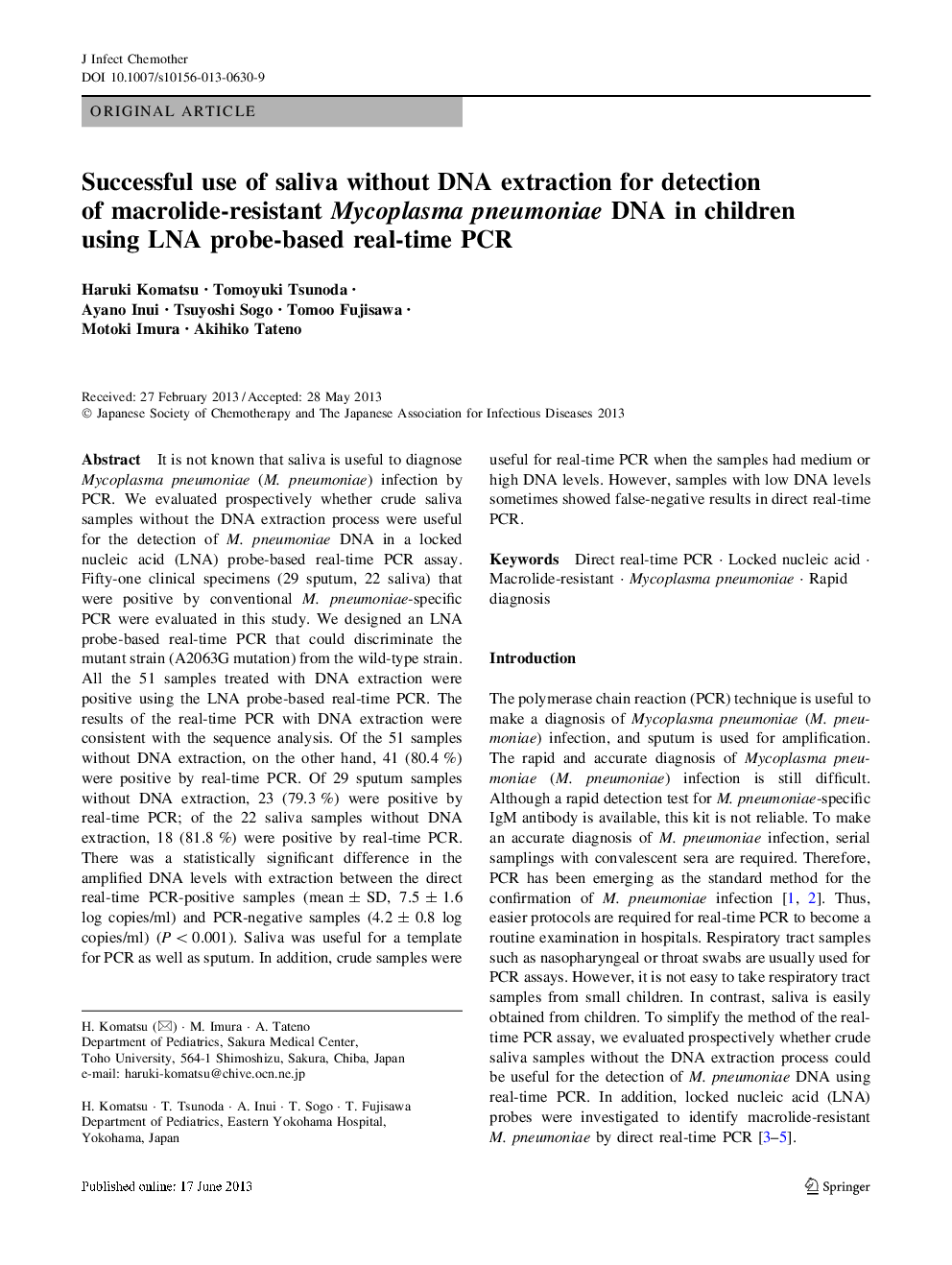| Article ID | Journal | Published Year | Pages | File Type |
|---|---|---|---|---|
| 6123683 | Journal of Infection and Chemotherapy | 2013 | 6 Pages |
Abstract
It is not known that saliva is useful to diagnose Mycoplasma pneumoniae (M. pneumoniae) infection by PCR. We evaluated prospectively whether crude saliva samples without the DNA extraction process were useful for the detection of M. pneumoniae DNA in a locked nucleic acid (LNA) probe-based real-time PCR assay. Fifty-one clinical specimens (29 sputum, 22 saliva) that were positive by conventional M. pneumoniae-specific PCR were evaluated in this study. We designed an LNA probe-based real-time PCR that could discriminate the mutant strain (A2063G mutation) from the wild-type strain. All the 51 samples treated with DNA extraction were positive using the LNA probe-based real-time PCR. The results of the real-time PCR with DNA extraction were consistent with the sequence analysis. Of the 51 samples without DNA extraction, on the other hand, 41 (80.4 %) were positive by real-time PCR. Of 29 sputum samples without DNA extraction, 23 (79.3 %) were positive by real-time PCR; of the 22 saliva samples without DNA extraction, 18 (81.8 %) were positive by real-time PCR. There was a statistically significant difference in the amplified DNA levels with extraction between the direct real-time PCR-positive samples (mean ± SD, 7.5 ± 1.6 log copies/ml) and PCR-negative samples (4.2 ± 0.8 log copies/ml) (P < 0.001). Saliva was useful for a template for PCR as well as sputum. In addition, crude samples were useful for real-time PCR when the samples had medium or high DNA levels. However, samples with low DNA levels sometimes showed false-negative results in direct real-time PCR.
Related Topics
Life Sciences
Immunology and Microbiology
Applied Microbiology and Biotechnology
Authors
Haruki Komatsu, Motoki Imura, Akihiko Tateno, Tomoyuki Tsunoda, Ayano Inui, Tsuyoshi Sogo, Tomoo Fujisawa,
